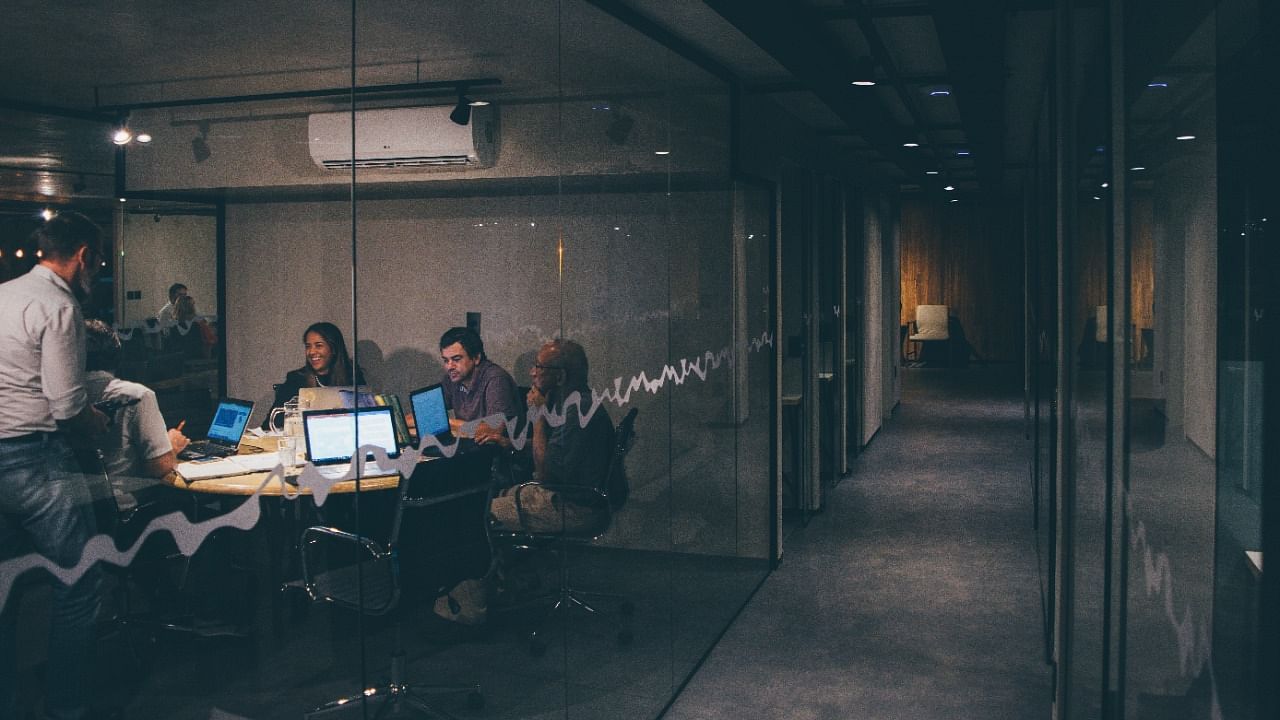
The Executive Centre (TEC), a Hong Kong-based premium flexible workspace provider, has witnessed around 85 per cent occupancy post-second Covid wave across its 33 flexible workplaces in India. TEC Group Managing Director Nidhi Marwah and Manish Khedia, Regional Managing Director-South India, TEC, explain to Mahesh Kulkarni of DH about the changing trends in flexible workspace. Excerpts:
With work from home becoming a standard practice post-Covid, how is it impacting your business?
Nidhi: Post-pandemic, several changes have happened, and some of them are likely to be permanent. Now, companies are willing to work in a hybrid work environment and flexible office spaces. Flexibility is the key theme under all product offerings and deal structures that are happening. From the earlier serviced offices to coworking, we are now seeing managed offices becoming a trend. Most of the clients have said they already have a portion of their portfolio driven by a flex office environment, and they want to enhance that by at least 30 to 35 per cent.
Is this phenomenon restricted to big cities?
Nidhi: This is happening across cities. More and more companies are allowing their people to go back to their hometowns and work. But they still want to give them a corporate environment. So, that is what we are seeing in the market right now. And safety and experience-based workplaces are coming up big time, which are tech-enabled so that people are still in contact with each other and communicating.
Do you see companies moving from large office campuses to Flexi workspaces?
Nidhi: I think it is a reaction to the current environment and not a decision for the long term. Given the challenges, it is tough to have a tech-enabled private area within our homes. It is also difficult for the teams to interact. I don’t think work from home is there to stay for long. The larger companies in the US have said their employees can work three days from the office and two days from home. Different models are evolving. I think the workplaces are getting redesigned. More and more companies are thinking of moving to Tier-2 and Tier-3 cities to provide a corporate environment to their employees.
Manish: This is a short-term strategy, which many companies are incorporating into their real estate portfolio. Based on our discussions with large corporates, over 50 per cent of the clients are looking to incorporate some flexible office space solution as a part of their real estate strategy. I think Tier-2 cities have come into the picture due to the movement of employees to their hometowns.
Are you getting more demand from corporates for managed office space?
Manish: Pre-pandemic, clients were approaching us for small office space when they were looking to start their operations in India.But post-pandemic managed office concept has picked up a lot, where larger corporates are also willing to invest under a flexible office umbrella. Over 50 per cent of the companies are exploring this option as a Flexi or a managed office space solution and incorporating it in their real estate strategy. The companies want to get out of the permanent lease model and explore a managed office space concept. We have already seen two large deals from Google and Microsoft, which took space from a flexible office provider. It is a sign that global companies and agencies are exploring flexible office space as a part of their real estate strategy.
Nidhi: There are many RFPs (Request for Proposals) in the market for 500 to 2,500 seats. Clients are willing to explore managed office space, which we never used to hear earlier.
What are your plans to cater to the new requirement for Flexi workspace?
Nidhi: We are looking at doubling our footprint in India to cater to the new demand. We can easily give the kind of experience our clients want. Currently, we are operating about a million square feet of space with an average of 40,000 to 45,000 sq. feet per centre. In the IT corridors of Bengaluru, we will have a larger footprint. We are now looking at about 60,000 sq. feet to 80,000 sq. feet per centre. We will be opening another 15 centres and already evaluating at least two centres in each of the cities that we are operating. We have planned to invest Rs 100 crore this year.
Check out latest DH videos here